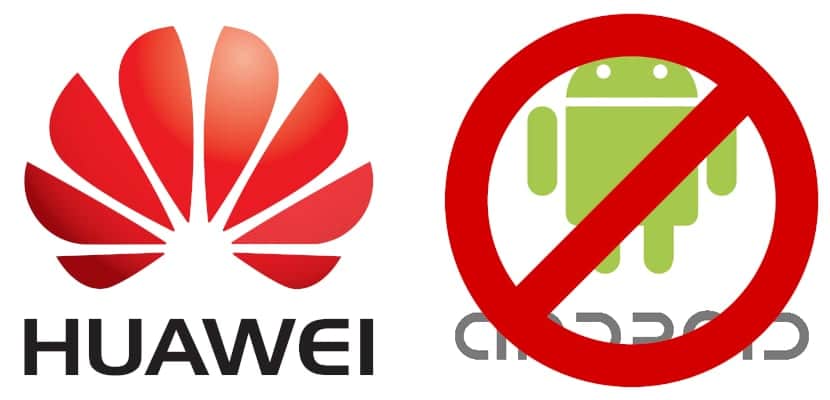
Last week, the Trump administration issued a decree that places Huawei on a blacklist, a decision that forces US companies to stop doing business with Huawei unless they have an official authorization.
The first public reaction to this decree was reported by Reuters. The US newspaper reported that, in an effort to comply with Donald Trump's request, Google decided not to provide any more software, hardware or technical service to Huawei with the exception of services available in open source.
However, Google has put into perspective that "For service users, Google Play and Google Play Protect security protections will continue to work on existing Huawei devices"
Which suggests that it will be only Huawei's new products that will be affected by this measure.

Given this Huawei also promised that it will continue to support its Android devices:
"Huawei will continue to provide security updates and after-sales services to all current Huawei and Honor smartphones and tablets, including those that have already been sold and those that are in stock worldwide," the Chinese group said on Monday.
Huawei, who had been waiting for him ever since, braced himself for this eventuality and he developed his own operating system in case his relationship with Google broke down.
However Donald Trump's decree has implications only for Huawei's mobile business, but more broadly for all the activities of the telecommunications giant.
Thus, like Google, many American semiconductor suppliers have decided to suspend their commercial relations with the Chinese.
Not only is Google there are also more things involved
This is the case, for example, of Intel, Qualcomm, Xilinx and Broadcom, which have decided to stop supplying more software and components critical of Huawei until further notice. This list has grown rapidly with Qorvo, Micron Technology, and Western Digital and probably many other US technology companies.
In anticipation of the crackdown in the US, Huawei has stockpiled key components for about six months to a year, making the company appear fairly serene as well.
Its founder, Ren Zhengfei, said on Saturday that everything would be fine even if Qualcomm and other US suppliers could not sell chips to Huawei.
"We have already prepared for it," he said in his first interview after Trump's decree was issued. But it seems that Trump's decree goes beyond the borders of the United States.
The fear of being sanctioned by the United States is gripping European and Asian companies.
In Europe as in Asia, The Trump decree also leaves companies that do business with Huawei indifferent.
The German chip maker Infineon Technologies has already suspended its shipments of components to Huawei, according to the Nikkei Asian Review, which provides China with microcontrollers and power management ICs.
The reason is that foreign companies that use a certain amount of American technology in the manufacture of products that they sell to Huawei are also subject to the same restriction.
Therefore, they risk legal repercussions in the United States if they do not comply with Donald Trump's decree. They themselves could be blacklisted.
“Infineon decided to take a more cautious measure and stopped supplying components to Huawei. But it will meet this week to discuss the situation and make assessments, "said one of the leaders of the German company. Only after clarifying the legal issues could Infineon decide to resume relations with Huawei.
Infineon's decision could have serious repercussions for Chinese society. It could encourage other European and Asian suppliers to take an equally cautious approach.
ST Microelectronics is expected to another European chip manufacturer of French and Italian origin, hold meetings this week to determine whether it will continue to supply components to Huawei. At the moment, ST Microelectronics continues its deliveries to the Chinese technology giant.
Taiwan Semiconductor Manufacturing Co.. (TSMC), the top Asian chip supplier in China, the world's largest chipmaker, continues to deliver products to Huawei, but is also conducting due diligence to assess the potential impact of the Trump Decree.
Other Asian supplierss, such as Toshiba Memory, the world's second largest flash memory vendor, and Japan Display Inc, the display vendor, They are also studying the implications of the Trump Decree for their businesses.
The country that follows Trump's sanctions is going to skyrocket, because China is the largest economy on the planet and finances most countries, including Europe.
It is time to create real linux or gnu-linux on mobile phones, let the Koreans, Japanese and Chinese join together and create real linux distributions
The editor shines: «…. The Trump decree also leaves people indifferent…. "Do you know the difference between" also "and" neither "? because the meaning of the phrase changes completely. Luckily I had already read about the subject on other sites, because with such a wording you have to make an extra effort to understand the meaning of what you write.
Like Huawei, alone or in the company of other software and hardware companies, it occurs to them to create an OS that can replace Android in smartphones and this is more secure and with greater customization capabilities ... it seems to me that Google is going to curse the mad from the toupee to infinity and beyond. It would be curious to see Huawei, ZTE, Xiaomi, ... implementing that OS in their products and offering support and updates. Being free from the tyranny of Google and the fragmentation of Android is something that many dream about. CyanogenMod or LineageOS have already been tried, but without the support of large companies, they are projects destined to disappear over time. As for companies like Intel to stop supplying processors, after the history of MDS vulnerabilities in Intel processors (and those that remain) maybe that would be a blessing. And as for Europe, hehehehe… no one beats us to impose fines. (irony)
The latest measures on the web and now on technologies are creating a closed and suffocating microclimate in the medium term. As one commenter said before, they are shooting themselves in the feet.